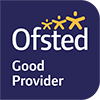Pastoral
The Raising Aspirations Suite (RAS)
The Raising Aspirations Suite is a positive and safe place that all students can access when they need to.
 Within the RAS we offer a wide variety of help and support for our students, to encourage them to thrive within school. If students are having a particular difficult day, they can ask their teacher to come up to the RAS where our team can chat and support them where needed. We also have a bean bag room that they can access to re-focus and collect their thoughts before going back to lesson.
Within the RAS we offer a wide variety of help and support for our students, to encourage them to thrive within school. If students are having a particular difficult day, they can ask their teacher to come up to the RAS where our team can chat and support them where needed. We also have a bean bag room that they can access to re-focus and collect their thoughts before going back to lesson.
RAS Team is made up of:
- Mrs Brauner – Pastoral Manager
- Miss Brown – Student Support Co-ordinator
- Mrs Valliani – Student Support
- Miss Ginto - Student Support
Mrs Brauner is there to support any students who are experiencing/struggling with mental health issues from self-harm, eating disorders or anxiety. The RAS is their safe place where they can come and discuss concerns and experiences, Mrs Brauner will give them strategies to use to best support them. Home is always contacted to talk parent/carers and make them aware of any support being given.
We promote Mental Health by celebrating World Mental Health Day, to show students it is ok not to be ok and there are always people they can talk to in school.
The RAS team offers 1:1 or small group interventions for a period of 6 weeks. The interventions are as followed –
- Social Skills – This intervention can cover a wide variety of subjects and is tailored for the students identified struggles whether it be a mixture of friendship issues and confidence in particular situations, or unpicking triggers within lessons/everyday life and putting strategies in place for these.
- Anger Management – Anger management is the only intervention which is a 12 week programme. This identifies the triggers, impact and strategies that students can use. Anger Management is not about taking the anger away as this is an everyday emotion it is about putting strategies in place to avoid losing control.
- Self-Esteem and Confidence – This intervention looks deeply into how students see themselves, insecurities if they have any that impact their everyday life and how we can make them feel better plus more equipped to manage certain situations or areas surrounding themselves. With working alongside the student on this intervention, we can show them they can do anything and they need to believe in themselves.
- Positive Behaviour Support – This is for students who struggle within lessons, which causes them to show low level disruptions. During the 6 weeks we look at the triggers surrounding these behaviours. What behaviours are shown, why they do it and what we could do instead.
- Emotional Resilience – This intervention looks into our emotions that surround us and how best to manage these and express them. We look deeply into how students feel in different areas and unpick any emotions they are struggling with.
- Lego Therapy – Lego therapy is done in a group of 3, this particular intervention works on building communications skills around others such as speaking, listening and following instructions.
We also do 1:1 weekly check in’s in tutor time, this is not a structured intervention but a chance for students to have a 1:1 chat for a 20 minute scheduled weekly chat to have a weekly check in and catch up.
Guidance for parents and carers on online sexual harassment and keeping children safe online
The Children’s Commissioner is today launching a guide for parents and carers on online sexual harassment and how they can support children to stay safe online.
“The things I wish my parents had known” draws together advice from 16 to 21 year olds on how parents should manage tricky conversations around sexual harassment and access to inappropriate content, including pornography.
The Commissioner’s office began a programme of work focussing on peer-on-peer abuse following the avalanche of testimonies on the Everyone’s Invited website, which laid bare an epidemic of sexual violence among teens. This was picked up in Ofsted’s June 2021 review of sexual harassment in schools and colleges.
A surprising but overriding message from young people is that parents should start these challenging conversations early. They suggest broaching topics before a child is given a phone or a social media account, which is often around the age of 9 or 10.


